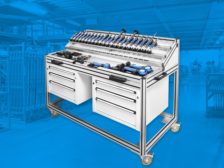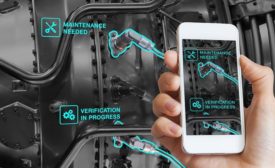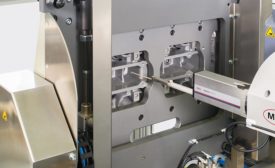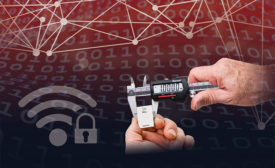Home » Industry 4.0
Articles Tagged with ''Industry 4.0''
Sponsored Content
Minitab Predictive Analytics with Auto ML makes predictive analytics more accessible to the masses.
Read More
Measurement
Innovation is Changing the World of Handheld Gaging
Within the Manufacturing Innovation Process, Metrology has Played a Predominant Role.
July 1, 2021
The Sisyphean Task of Quality 4.0
The fourth industrial revolution, or Industry 4.0, and what to do to get engaged with Quality 4.0, began in 2011.
May 7, 2021
4 Ways to Approach Data Mining
Data and connectivity are crucial to automation and therefore key to efficient, productive factories.
April 30, 2021
Sponsored Content
White Paper: Learn about the Transformative Advantages of Wireless Measurement Data Collection for Industry 4.0
April 12, 2021
How digital process monitoring drives sustainability
Predictive tools, standardized data, and self-learning production systems can go a long way in helping manufacturers save energy and minimize their environmental footprints.
April 12, 2021
VISION & SENSORS - AUTOMATION
How Augmented Reality Can Support Industry 4.0
With the introduction of augmented reality into assembly and inspection processes, cutting-edge industry 4.0 research is uncovering best practices to maximize quality.
March 9, 2021
From the Editor | Darryl Seland
Speaking the same language
Choosing your words and everything else, wisely.
March 5, 2021
Stay in the know with Quality’s comprehensive coverage of
the manufacturing and metrology industries.
eNewsletter | Website | eMagazine
JOIN TODAY!Copyright ©2025. All Rights Reserved BNP Media.
Design, CMS, Hosting & Web Development :: ePublishing











